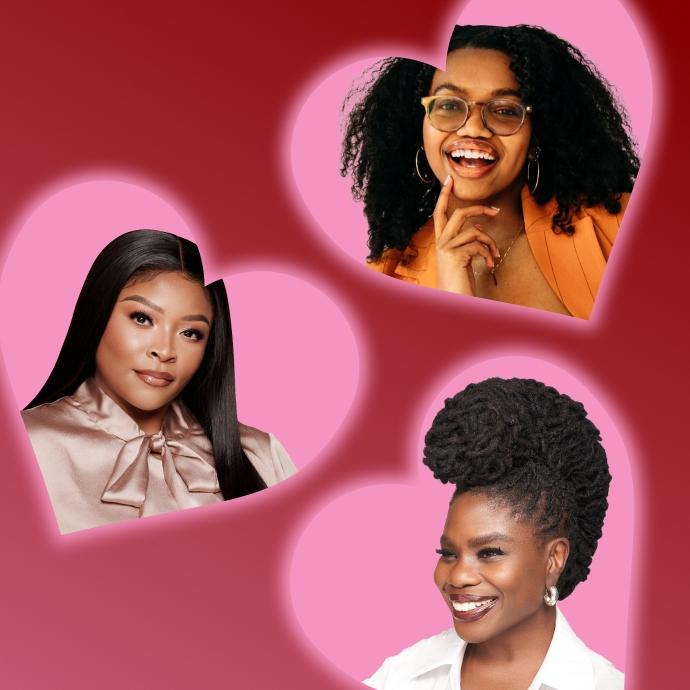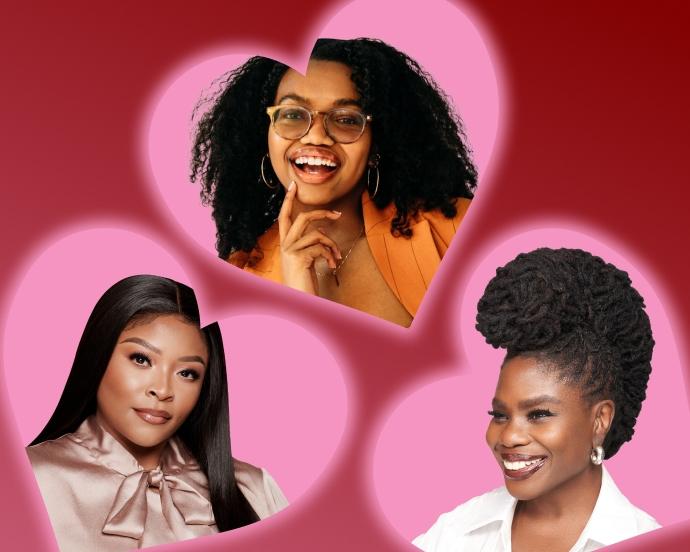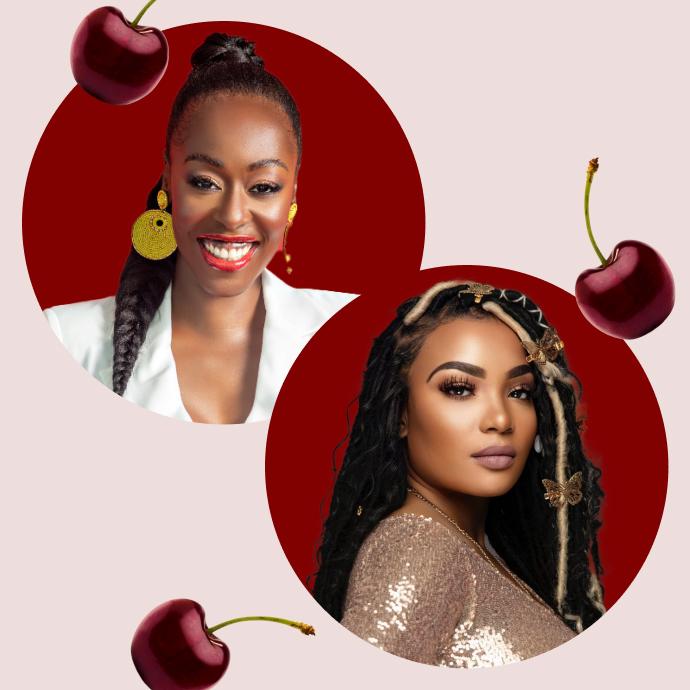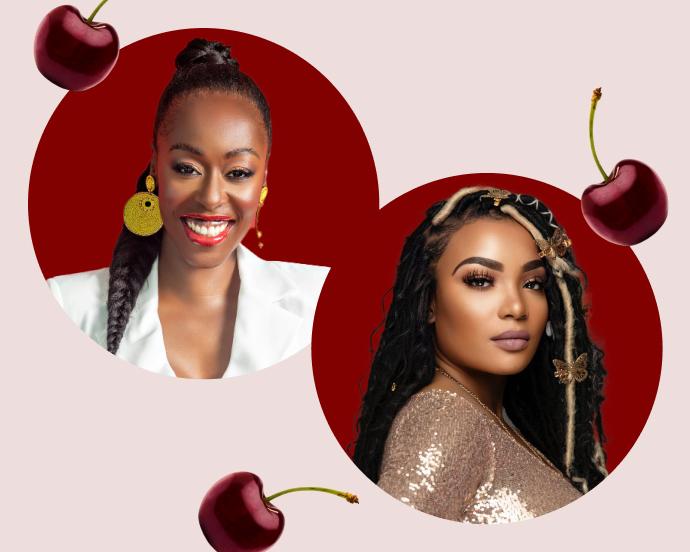Soy Negra, y Soy Dominicana: Miss Rizos Talks Curls, Identity, and Radical Self-Love



Kindra Moné


If you’ve ever been to a Dominican hair salon, you were likely greeted with the smoky aroma of hair sheen and the sizzling sound of hair being pressed and stretched from curls and kinks into the famously bone-straight Dominican blowout. This hair-fried sizzle that is familiar to so many will not be found at Carolina Contreras’ natural hair salon, Miss Rizos salon. Her namesake brand has two salon locations (one in Santo Domingo, Dominican Republic and the other in New York City) that are working to not only transform the way that curly-haired people see their hair but to also change how Afro-Latina women see their own beauty.
But before Carolina was Miss Rizos, she was a sometimes straight-haired activista fighting to make a change in the Latinx community while searching for her own voice. We caught up with the social entrepreneur to learn how her perception of beauty has evolved over the years, and of course—to ask her how she keeps her curls so good. Keep reading to see beauty through Carolina’s lens.
It's about glam time you treated yourself.
Join IPSY

When Beauty Was Pain
A quick scroll through Instagram reveals a vibrant Carolina with fluffy, yet still perfectly defined corkscrew curls. The same curls that she once did everything in her power to tame are now a symbol of embraced identity and natural beauty. “I was constantly straightening my hair, relaxing my hair, and just trying to be like my cousin who had long, straight, silky hair,” says Carolina. “I was trying to be like everyone I saw on TV or like the girls in my AP and Honors classes. Beauty was painful. Physically, I endured a lot of pain through relaxers on my scalp and the heat of the hot pins under the dryer. As the oldest of four girls, I also inflicted this pain on my younger sisters.”
“It was painful in a spiritual way and, I think, in a psychological way because even though I didn’t know it at the moment, I was really hurting my identity and harming myself,” she adds. “As I progressed in life, Black and Brown people dwindled, and that was all linked to beauty and a unique type of pain. I imagine, too, that we inherit a lot of pain from our ancestors and from this idea of conforming and body-policing to fit standardizations of beauty that don't include us. It was painful on a lot of different levels, and that’s how I remember beauty growing up.”
Soy Negra y Soy Dominicana
While there is a painful history of rejecting or diluting Blackness in many Latinx communities, Carolina grew up with a unique awareness and acceptance of her intersectional identity. “I was really fortunate that I grew up in a household where my mom would use endearing language like ‘mi morenita linda, mi negrita linda’ [which both are loving terms for darker skin tones]. I don't think she ever shamed us of our skin tone, so I didn't grow up wanting to necessarily be a lighter complexion. I grew up around a lot of black people, and I just saw myself in them. So it was almost like a no-brainer. I didn't grow up in a Dominican community, and maybe if I did, my experience would have been different, but I have been very in tune and conscious racially from a very young age. I would pick up on cues and notice that I was treated the same as the Haitian black girl or that African American girl so, clearly, I am them.”
Carolina also was drawn to activism very early. It started out as something to do after school to avoid going home, but it slowly became a calling. “Growing up, I always knew I wanted to help people. I thought I was going to be a senator or a lawyer for immigrant people. I grew up in a Dominican household in a very diverse community,” Carolina recalls “It was full of people from Haiti, El Salvador, and Brazil, but in high school, I had an insanely acute sense of my blackness, which I think is interesting. I babysat my nurse’s children and although she was a Jewish woman, she had all these books and I remember being like 13 or 15 and reading Cornell West Race Matters and not understanding it fully, but loving it. I was very much aware of my blackness and proud of it. But it wasn't until college that it hit me that I was holding on tight to this idea of having straight hair because it made me feel more beautiful and it made me feel more worthy. So even though I had read practically every empowering book you could imagine, and I was progressive in the idea that I am Black and I am Dominican, I still held on to the hair.
I navigate this world as a black woman and I’m treated that way. When I open my mouth and I speak Spanish, I navigate this world as a Black immigrant Latina woman. I'm very tuned in to those co-existing identities.”
Finding Miss Rizos
It took a summer of humidity in Santo Domingo to finally go on a quest in search of her natural curls, a journey that most of us call “the Big Chop”. Carolina had just graduated college and read The Alchemist and was compelled to go to the Dominican Republic in search of her personal legend. Little did she know, it would find her.
“I ended up staying in DR accidentally,” she explains. “I went for two months, and never took that flight back. After about 6 months, I cut off all my hair. I thought I was going to slowly transition but that only lasted about three weeks and then I cut it all off and left it short and natural. At first, I was so self-conscious and I felt really ugly. I was in a relationship then, and I remember coming home and telling my boyfriend at the time ‘I don't care what you think, but don't say anything!’ and feeling really nervous but he was like, ‘no you look beautiful. You look like a model!’ It was definitely hard. I had maybe an inch of curls on my head. I had to let it settle and I had to learn and faith it till I made it.
“Eventually, I ran out of money and had to get a job, so I took a job at a nonprofit working with sex workers and HIV prevention within the immigrant community for three to four years. While I was there, I started my blog. As soon as I landed in DR, I knew I wanted to work with empowering women. I noticed that there weren't magazines where we were featured in. There was no Essence, Ebony, or Jet—so when you opened up magazines there were all White Westerners and White Dominicans, but there are a lot of Black and Brown people in the Dominican Republic and I wanted to be a part of that change. Once I started to let my hair grow naturally, I started blogging it just for me and I also noticed that a lot of people were stopping me in the streets. A lot of women would ask me, How did you do that? How did you get it so shiny? How did you get the courage to cut it? I was literally working with people in the sex industry and they were so bold but they would whisper about hair. Textured hair was more taboo than sex! All those things were an indication that I needed to create a platform where instead of spending 30 minutes talking to people in the street about my hair, I could just write on a napkin and tell them to go to missrizos.com.
“As the blog grew, people would come to me and say, ‘okay, you cut your hair like that, and I want to grow my hair like that too.’ I had some background working in a salon and I was always doing the hair of my younger three sisters, so I started doing hair from my apartment. Women started coming from so far away and I noticed a theme of a hunger for self-acceptance, change, validation, and representation, so I kind of just went with it. That’s how it all came about 10 years ago.”
On Entrepreneurship & The Miss Rizos Foundation
Being an entrepreneur as a Black woman and a Latina woman is no easy feat, but Carolina says the impact of her work makes it all worth it. “Even in moments of serious financial lack because of putting all my savings into this and having to start from scratch multiple times (I’m talking making-a-Chipotle-burrito-last-all-day lack), I’ve been fortunate enough to see an impact of the work I do in real-time. For example, I started collaborating with a girls group in a remote area in the northeast part of the Dominican Republic. We taught these girls a workshop on correctly naming their hair. So I’d ask them, what do you call hair? They would use words like bad, broom, or concon, which is the bottom of a pot of rice. And we would correct them and challenge them to think of their hair differently. From that very simple, straightforward workshop, we taught these girls the proper way of calling and naming their curls, coils, kinks—all these different terms in Spanish that empower them. That was on a Monday. By Tuesday, they came back in and we saw the girls with their afros out! It was an immediate thing where we got to see the fruit of our work. Those girls were 9 to 13 then. Now, those girls are in their late teens and twenties and they have their own organization in the region teaching other girls! That keeps me going.”
Miss Risoz has expanded with an enormous bi-coastal reach over the past decade, and it is all the result of mission-driven hard work. Carolina shares, “everything that has happened with Miss Rizos has happened in the most organic way. There’s no crazy marketing and I’ve had no real investors, so there’s no one pumping money into the growth of this research. It's all been bootstrapped and I’ve worked really hard to feed a need that has been around for so long. In celebration of our 10 year anniversary, we launched the Miss Rizos Foundation. We do a lot of social work and workshops with little girls on beauty, identity, and empowerment for years now, and we've been doing it using our own girls from the salon with our own resources. I'm really excited about all that's to come with the foundation, and I'm going to be working hard so that it grows to a point that we can give out fellowships and scholarships. The possibilities are endless.”
“In the future, I obviously see us growing our business and establishing ourselves in other realms in the beauty industry. Personally, I dream of being a really impactful investor one day with a venture capital firm dedicated to financing and educating entrepreneurs like me who have a great idea that's changing the world but have no money and no business know-how. I’d love to identify these women and propel them to success through lots of money and resources.”
What’s the Haircare Routine, Sis?
When it comes to her own curls, we couldn’t speak with Miss Rizos without getting her hair method. “The LOC method never worked for me. I like having definition because more defined curls mean I'm going to get moisture locked in for longer and it's going to grow more voluminous little by little throughout the day. I also prefer fewer tangles, and if I put too much cream and oil, I won't get as much definition and I'll get a lot of fairy knots. For me, I'm all about using a leave-in conditioner and a gel. My process would be leave-in, gel, oil.” And if you have trouble finding a hair gel that doesn’t dry out your curls, Miss Rizos is working on that!
On Body Positivity & Radical Self-Love
Today, Carolina Contreras is synonymous with empower and self-love, but she expresses that it is a daily battle, even for her. “I’ve been asked about body image a lot lately and I guess it’s because I talk about it on Instagram, I forget that people are reading sometimes. But overall, it’s a journey. Just like loving your hair, it’s a journey to love your body as it is. It transforms through the years and one of the things that I'm realizing more and coming to terms with is aging. I’m 34, so I feel young, but my body is changing. What I'm more focused on now is how can I keep my body healthy? How can I age gracefully in terms of not just the aesthetic but also the internal aspect of aging? And how do I continue to find beauty in the essence of being myself and not in how I look? Being unapologetic about who I am, not taking shit from people, and standing up for myself are all beautiful things—and they're not necessarily linked to how my body looks or how my hair looks. I’m really learning beauty through the lens of self-acceptance and not attributing beauty to how my waist is snatched or this or that.
“I've changed a lot of the language about my body. In the same way, I changed my language about my hair, and I also have changed the way I talk to other people about their bodies. I used to be that person to say ‘you're snatched’ and blah blah. And now I don’t want to put energy or value in those ideals that are constructed by a society and that’s meant to keep us entertained and losing weight and staying online instead of living life fully and chasing our dreams or changing the world. Loving yourself is a radical thing in a world constantly trying to change you. Of course, I have hard days. Sometimes I feel like I gain weight by breathing and drinking water—so it’s not always easy. However, I'm headed to a place of finding beauty beyond what we traditionally think it is. I’m also not going to lie to you. I love a good red lipstick, and a nice pair of jeans. I'm not divorcing myself from this idea of adorning and taking care of myself. I think it's fun. I just don't want to be tied to that as the only source of feeling beautiful.”
We can all learn a few lessons from Carolina’s contagious practice of radical self-love. To learn more about the Miss Rizos Foundation, check out missrizosfoundation.com
Interested in reading more Beauty Through The Black Lens? Read how celebrity stylist Lacy Redway is changing the beauty industry. Want in on all the IPSY Glam Bag fun? Take our Beauty Quiz now to get started. Already an Ipster? Refer your friends to earn points, which you can use toward products. Either way, don’t forget to check us out on Instagram and Twitter @IPSY.
Like this article? Share it with your friends by clicking the icons below!
Liked this post? Share!
Related Stories


Beauty Amplified
Celebrating Black Beauty, Creativity, and Culture—This Month and Always
Published on Jan 23, 2026 • 3 min read


Beauty Amplified
Our Favorite Black-Owned Beauty Brands That Remind Us Why Representation Matters
Published on Jan 23, 2026 • 18 min read


Beauty Amplified
61 Women-Founded Brands Currently Changing the Beauty Game
Published on Dec 14, 2024 • 15 min read


Beauty Amplified
These Hispanic Heritage Month Mystery Bags by Jenn Torres Are a Tribute to Latinx Culture
Published on Aug 28, 2025 • 3 min read


Beauty Amplified
Meet the Latinx-Founded Brands Building the Beauty of Tomorrow
Published on Aug 28, 2025 • 10 min read


Beauty Amplified
Celebrating Hispanic Heritage Month and the Power of Latinx Beauty
Published on Aug 28, 2025 • 3 min read


Beauty Amplified
Meet the LGBTQ+ Founded Brands Shaping the Future of Beauty
Published on May 28, 2025 • 14 min read


Beauty Amplified
Come Along for the Pride: Your Invitation to Celebrate Love, Identity, and Expression
Published on May 28, 2025 • 3 min read


Beauty Picked Just for You
Get 5 products worth up to $70
Plus exclusive access to epic deals up to 80% off
Starting at just $14/month. Cancel anytime.